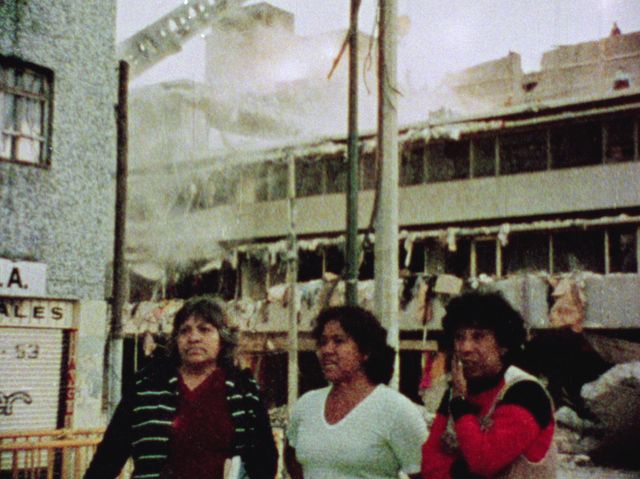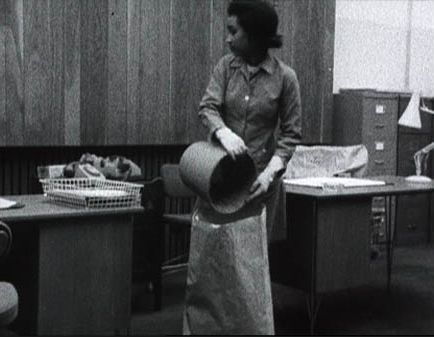Cinema
No les pedimos un viaje a la luna | Nightcleaners
Wed, Jun 22–Wed, Aug 24, 2022
Every Wednesday
2.30 pm
Admission with exhibition ticket

No les pedimos un viaje a la luna (We Aren’t Asking for a Trip to the Moon)
D: Maricarmen de Lara, Mexico 1986, 58 min, Spanish OV with English subtitles
On September 19, 1985, an earthquake hit Mexico City, causing widespread damage and the death of some 5,000 people. No les pedimos un viaje a la luna charts the impact of this event on the more than 40,000 garment workers who were left unemployed, with no right to severance pay. Working with an all-female crew, Maricarmen de Lara bears witness to the establishment of the seamstresses’ union, documenting attempts to secure compensation and better conditions in the aftermath of the catastrophe. “We’re not asking for a trip to the moon, we are simply seeking our rights under the law. Nothing more,” the seamstress Guadalupe Conde explains during a protest outside the Mexican Secretariat of Labor and Social Welfare. From the early 1980s, Lara was a member of Cine Mujer, a collective founded in 1975. In the words of member Rosa Martha Fernandez, the group’s aim was “to unravel what is apparently ‘natural’ about oppression; to show the political, economic, and cultural interests that cause women to be in the state they are in.”

Nightcleaners
D: Berwick Street Film Collective (Marc Karlin, Mary Kelly, James Scott und Humphry Trevelyan), United Kingdom 1975, 95 min, English OV
Nightcleaners mingles a realist commitment with Brechtian strategies to address a campaign to unionize women who cleaned office buildings at night, initiated in London in 1970 by a working group affiliated with the Women’s Liberation Workshop. After shooting in a vérité style, in the editing process the Berwick Street Film Collective adopted techniques that introduce a reflexive distance from the events depicted, drawing on the lexicon of experimental filmmaking to probe the politics of representation across class lines. The production of Nightcleaners, a film deeply concerned with the cleaners’ caring responsibilities, overlapped with the creation of Mary Kelly’s Post-Partum Document (1973–79), a landmark work of conceptual art devoted to the subject of motherhood.